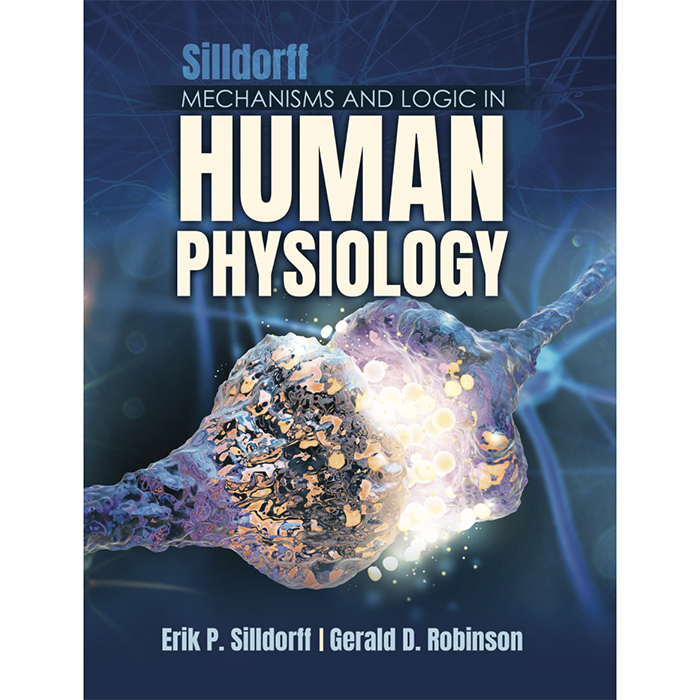Education
B.A. Biology and Chemistry, University of Delaware
Ph. D. Physiology, University of Delaware
Professor

B.A. Biology and Chemistry, University of Delaware
Ph. D. Physiology, University of Delaware
Human Physiology
Over the past decade, I have focused on the development of a novel textbook in Human Physiology. This text promotes the enhancement of critical thinking skills by explaining organ system function from the perspective of its adaptive logic (how it makes biological sense!). The text was completed in 2021 and is now available from Kendall Hunt Publishing. The book, titled Mechanisms and Logic in Human Physiology, will support courses for undergraduate students nationwide in Biology and Allied Health fields.
From the cover…
Mechanisms and Logic in Human Physiology provides students with a means to employ real comprehension and critical thinking, allowing them to engage the content meaningfully and effectively. Our approach emphasizes the “how” and the “why” behind physiology, demonstrating consistency in mechanism fundamentals and providing a wider perspective that makes concepts almost intuitive. Students learn to think from the standpoint of functional logic, tackling novel situations with critical and analytical minds. Reading this text is perfect training for students (and others!) interested in learning physiology via true understanding. Mastering the concepts and cognitive skills developed here will be excellent preparation for advanced study, teaching, research, or a medical career.
My previous research interests and training are in cardiovascular and renal (kidney) physiology. As an undergraduate and graduate student at the University of Delaware, I worked in the area of comparative physiology of the renin-angiotensin system. Specifically, I studied the mechanisms of angiotensin II action on the vasculature and cardiac performance in reptiles, including the American alligator. As a post-doctoral fellow at both Penn State and University of Maryland medical schools I worked in the area of hormonal control of capillary blood flow in the mammalian kidney. Studies examined the contractile characteristics of the kidney microcirculation, specifically the descending vasa recta (a particular capillary network), to determine the potential for regulation of total and regional renal blood flow. Focus was on the effects and interactions of molecules acting in a paracrine or autocrine (local) manner within the cortex (outer region) and medulla (inner region) of the kidney. These blood flow studies provided information about the regulation of the urine concentrating mechanism, blood pressure control, and pathological conditions such as acute ischemic renal failure. Techniques utilized included in vitro microperfusion and videomicroscopy for the measurement of blood vessel contractility as well as fluorescent imaging and photometry for the measurement of cellular signaling events. Grants from the American Heart Association and NIH supported this research.

View a webinar from Dr. Silldorff and his co-author about their new book.
View more InformationSilldorff, E.P. and Robinson G.D., Development of critical thinking skills in human anatomy and physiology, The American Journal of Physiology, Advances in Physiological Education, 2023 Dec 1;47(4):880-885. doi: 10.1152/advan.00131.2023.
Towson University Faculty Award for Teaching, 2023
Fisher College of Science and Mathematics excellence in teaching award, 2023